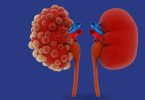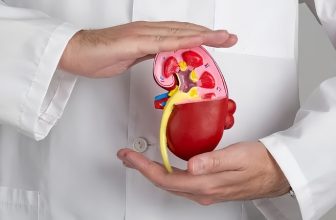Top Ways to Manage Kidney Health with the Chronic Kidney Disease Solution (CKD)
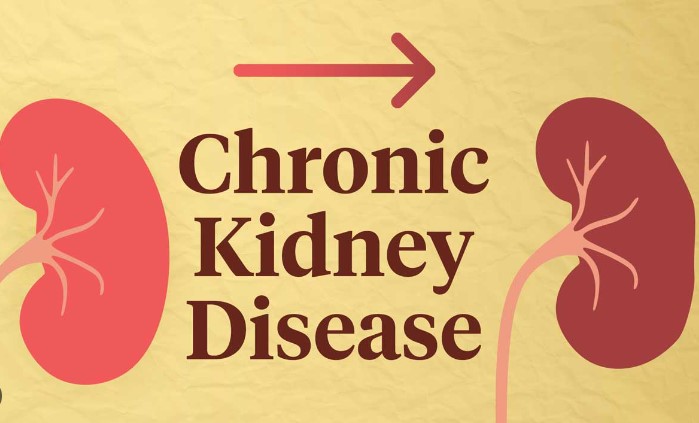
Chronic Kidney Disease (CKD) is a progressive condition that affects millions worldwide, leading to a gradual loss of kidney function over time. Managing CKD effectively requires a comprehensive approach that addresses the underlying causes, incorporates lifestyle modifications, and utilizes natural healing pathways. The Chronic Kidney Disease Solution offers a holistic strategy to manage and potentially reverse CKD symptoms. This article explores the top methods recommended by the program to maintain and improve kidney health.
Understanding Chronic Kidney Disease
CKD develops gradually, often without noticeable symptoms until advanced stages. It involves a decline in the kidneys’ ability to filter waste and excess fluids from the blood, leading to toxin accumulation and potential complications. Common causes include diabetes, hypertension, cardiovascular disease, and obesity. Traditional treatments focus on symptom management and slowing disease progression, but the Chronic Kidney Disease Solution emphasizes addressing root causes through natural means.
1. Adopting a Kidney-Friendly Diet
Diet plays a crucial role in managing CKD. Consuming the right nutrients can alleviate kidney strain and promote overall health.
Key Dietary Recommendations
- Reduce Sodium Intake: Excessive sodium can lead to fluid retention and increased blood pressure, exacerbating CKD. Aim to consume less than 2,300 mg of sodium daily.
- Limit Protein Consumption: High protein intake can burden the kidneys. Opt for moderate portions of high-quality proteins like lean meats, fish, and plant-based sources.
- Control Phosphorus and Potassium Levels: Elevated levels of these minerals can harm CKD patients. Limit foods high in phosphorus (e.g., dairy products, nuts) and potassium (e.g., bananas, oranges).
- Increase Fiber Intake: Fiber aids digestion and can help control blood sugar levels. Incorporate whole grains, fruits, and vegetables into your diet.
Benefits
- Slows Disease Progression: Proper nutrition can decelerate CKD advancement.
- Manages Blood Pressure: A balanced diet helps maintain optimal blood pressure levels.
- Reduces Toxin Build-Up: Limiting certain nutrients decreases waste accumulation in the blood.

2. Engaging in Regular Physical Activity
Physical exercise is vital for overall health and particularly beneficial for CKD patients.
Recommended Activities
- Aerobic Exercises: Walking, cycling, and swimming improve cardiovascular health and aid weight management.
- Strength Training: Light resistance exercises help maintain muscle mass and support metabolism.
- Flexibility and Balance Exercises: Yoga and stretching enhance flexibility and reduce injury risk.
Benefits
- Improves Blood Pressure: Regular exercise helps regulate blood pressure, reducing kidney strain.
- Enhances Insulin Sensitivity: Physical activity aids in blood sugar control, crucial for diabetic CKD patients.
- Promotes Weight Management: Maintaining a healthy weight alleviates additional pressure on the kidneys.
3. Managing Stress and Mental Health
Chronic stress can negatively impact kidney health. Implementing stress-reduction techniques is essential.
Effective Stress Management Techniques
- Mindfulness Meditation: Practicing mindfulness reduces stress and promotes mental clarity.
- Deep Breathing Exercises: Controlled breathing techniques calm the nervous system.
- Engaging in Hobbies: Participating in enjoyable activities distracts from stressors and enhances mood.
Benefits
- Lowers Blood Pressure: Stress reduction contributes to maintaining healthy blood pressure levels.
- Improves Sleep Quality: Managing stress leads to better sleep, essential for overall health.
- Enhances Immune Function: Reduced stress strengthens the immune system, aiding in disease management.
4. Ensuring Adequate Hydration
Proper hydration is crucial for kidney function. However, CKD patients must balance fluid intake to avoid overloading the kidneys.
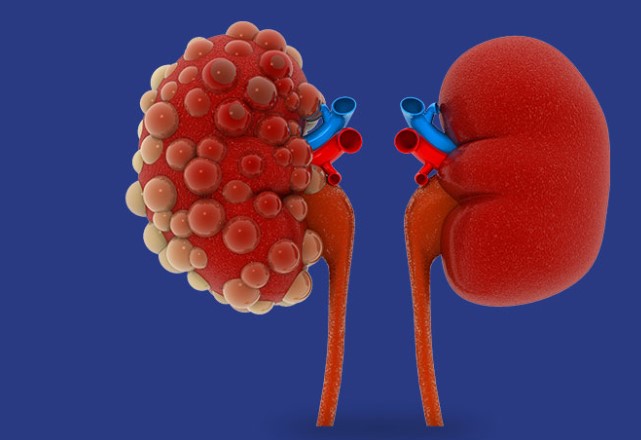
Hydration Guidelines
- Monitor Fluid Intake: Consult with a healthcare provider to determine appropriate daily fluid consumption.
- Choose Water Over Sugary Beverages: Water is the best choice for hydration without adding unnecessary sugars.
- Be Cautious with Diuretics: Limit intake of caffeine and alcohol, as they can lead to dehydration.
Benefits
- Aids Waste Removal: Proper hydration helps kidneys filter and eliminate toxins effectively.
- Prevents Kidney Stones: Adequate fluid intake reduces the risk of stone formation.
- Maintains Electrolyte Balance: Hydration supports the balance of essential minerals in the body.
5. Utilizing Herbal Remedies and Supplements
Certain herbs and supplements may support kidney health. However, it’s essential to consult with a healthcare provider before starting any new supplement.
Notable Herbs and Supplements
- Astragalus: Traditionally used to support kidney function and boost the immune system.
- Dandelion Root: Acts as a natural diuretic, aiding in toxin elimination.
- Omega-3 Fatty Acids: Found in fish oil, they have anti-inflammatory properties beneficial for kidney health.
Benefits
- Reduces Inflammation: Certain supplements can decrease inflammation, slowing CKD progression.
- Supports Immune Function: Herbal remedies may enhance the body’s natural defenses.
- Provides Antioxidant Effects: Supplements can combat oxidative stress, protecting kidney cells.
6. Monitoring and Managing Blood Pressure
High blood pressure is both a cause and a consequence of CKD. Maintaining optimal blood pressure is vital.
Strategies for Blood Pressure Control
- Regular Monitoring: Keep track of blood pressure readings to detect and address changes promptly.
Strategies for Blood Pressure Control (continued)
- Medication Adherence: If prescribed antihypertensive medications, ensure they are taken consistently and as directed by a healthcare provider.
- Reduce Salt Intake: Sodium reduction is crucial for maintaining healthy blood pressure and reducing strain on the kidneys.
- Physical Activity: Regular exercise helps maintain healthy blood pressure levels and supports overall cardiovascular health.
Benefits
- Protects the kidneys from further damage by reducing high-pressure strain.
- Reduces the risk of complications like heart disease and stroke.
- Slows the progression of chronic kidney disease.
7. Enhancing Sleep Quality
Sleep plays a vital role in the body’s ability to heal and maintain overall health, including kidney function. Poor sleep can exacerbate CKD symptoms and increase stress levels.
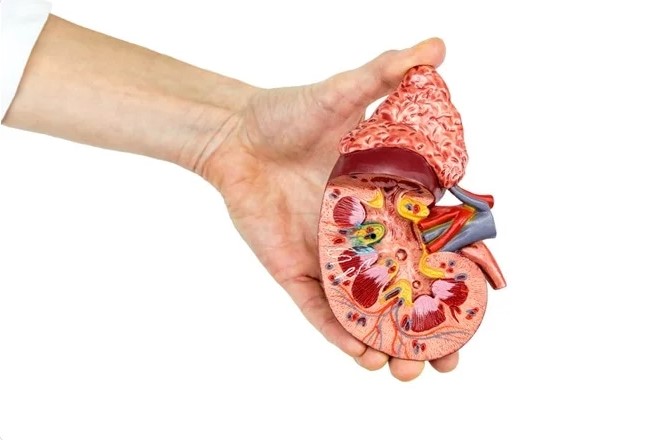
Tips for Better Sleep
- Establish a Routine: Go to bed and wake up at the same time every day to regulate the body’s internal clock.
- Limit Stimulants: Avoid caffeine and heavy meals close to bedtime.
- Create a Restful Environment: Ensure the bedroom is dark, quiet, and at a comfortable temperature.
- Practice Relaxation Techniques: Meditation or deep breathing before bed can promote relaxation and better sleep.
Benefits
- Improves energy levels and reduces fatigue associated with CKD.
- Enhances the body’s ability to repair and regenerate tissues.
- Lowers stress, indirectly benefiting kidney health.
8. Utilizing Regular Monitoring and Medical Support
The Chronic Kidney Disease Solution emphasizes the importance of consistent medical monitoring to track progress and make necessary adjustments.
Key Monitoring Practices
- Routine Lab Tests: Regular checks of kidney function, including GFR (glomerular filtration rate) and creatinine levels, provide insights into disease progression.
- Blood Sugar Management: For those with diabetes, maintaining stable blood sugar levels is critical to preventing kidney damage.
- Medication Reviews: Work with healthcare providers to ensure medications are kidney-friendly and adjust dosages as needed.
Benefits
- Early detection of potential complications.
- Tailored interventions based on individual progress.
- Greater confidence and clarity in managing the disease.
9. Emphasizing Mental Health and Emotional Well-Being
Chronic illnesses like CKD can take a toll on mental health, leading to anxiety, depression, or feelings of hopelessness. Addressing these emotional challenges is a core aspect of the program.
Emotional Support Strategies
- Counseling or Therapy: Speaking with a professional can help manage the psychological impact of CKD.
- Support Groups: Joining a community of individuals facing similar challenges can provide encouragement and shared insights.
- Gratitude Practices: Keeping a gratitude journal helps shift focus toward positive aspects of life.
Benefits
- Improves overall quality of life and coping mechanisms.
- Reduces the emotional burden of managing a chronic illness.
- Encourages adherence to health routines and practices.
10. Creating a Holistic Lifestyle Approach
The Chronic Kidney Disease Solution advocates for a lifestyle that harmonizes diet, activity, and emotional health to promote overall well-being.
Components of a Holistic Lifestyle
- Balanced Nutrition: Focus on whole foods that are kidney-friendly.
- Sufficient Rest and Recovery: Prioritize sleep and relaxation to support healing.
- Sustainable Habits: Gradual, consistent changes lead to long-term benefits.
Benefits
- Addresses the root causes of CKD rather than just the symptoms.
- Creates a sustainable path to improved kidney health.
- Empowers individuals to take control of their health journey.
Conclusion
The Chronic Kidney Disease Solution provides a comprehensive, natural framework for managing and improving kidney health. By focusing on key areas like nutrition, exercise, stress management, and regular monitoring, the program offers a path toward better kidney function and overall well-being. Adopting these strategies not only helps slow the progression of CKD but also empowers individuals to live healthier, more fulfilling lives.
Whether you’re newly diagnosed or looking for ways to enhance your current treatment plan, implementing the principles of the Chronic Kidney Disease Solution can lead to meaningful improvements. Always consult with a healthcare provider to tailor these practices to your unique needs and ensure the best outcomes.


